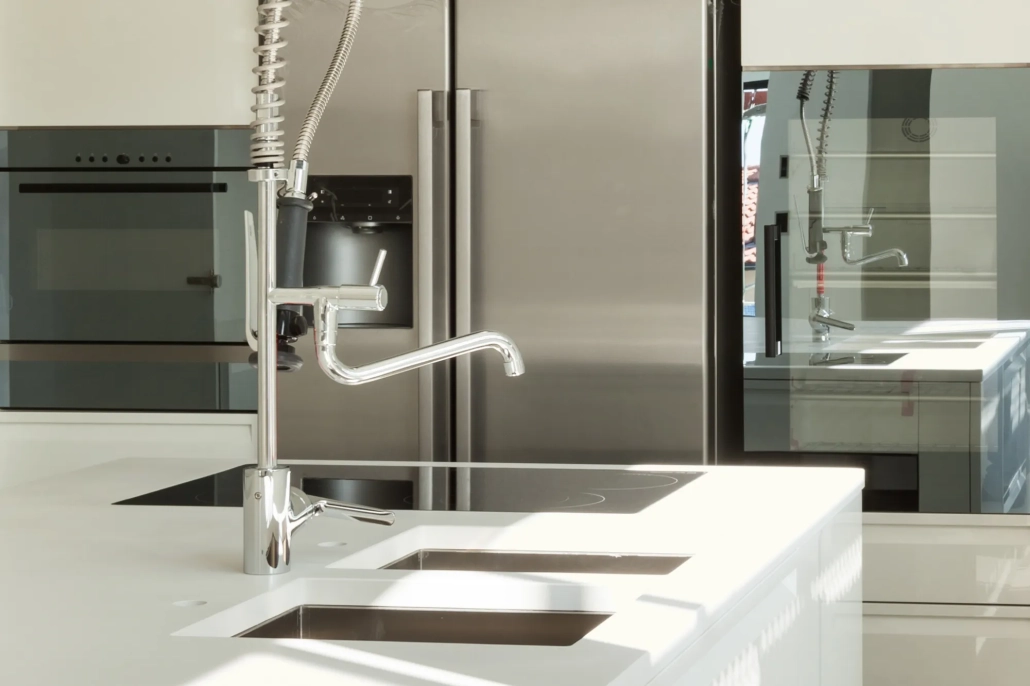Desert Equity Unveiled The Pros and Cons of Reverse Mortgages in Phoenix
by Kevin Webber
Unlocking Your Home’s Potential: Reverse Mortgages in Phoenix
In the sun-soaked sprawl of Phoenix, where retirees flock to bask in the desert glow and vibrant community life, financial security remains a top priority as the golden years unfold. For many, the home—often the largest asset after decades of payments—holds untapped potential. Enter the reverse mortgage, a financial tool that’s gaining traction among Arizona seniors aged 62 and older. Unlike a traditional mortgage where you pay the lender, a reverse mortgage flips the script: the lender pays you, drawing from your home equity without monthly repayments. It’s a lifeline for some, a gamble for others. So, what’s the real story behind reverse mortgages in Phoenix? Let’s dive into the advantages, weigh the disadvantages, and unpack the requirements to see if this could be your key to a more comfortable retirement.
The Phoenix Appeal: Why Reverse Mortgages Matter Here
Phoenix, with its affordable cost of living compared to coastal cities, warm climate, and retiree-friendly amenities, is a magnet for seniors. The median home value hovers around $420,000 (as of early 2025), well below the national reverse mortgage lending limit of $1,209,750, making it an ideal market for tapping equity. Imagine eliminating your mortgage payment, funding home upgrades for accessibility, or simply padding your nest egg—all while staying in the Valley of the Sun. A reverse mortgage, particularly the Home Equity Conversion Mortgage (HECM)—federally insured by the FHA—promises just that. But like any financial decision, it’s a balancing act of pros and cons, and understanding both sides is crucial.
Advantages: The Bright Side of Reverse Mortgages
The biggest draw? No monthly mortgage payments. For retirees on fixed incomes—Social Security, pensions, or modest savings—this can be a game-changer. Instead of sending checks to a bank, you receive funds—either as a lump sum, monthly payments, a line of credit, or a mix—based on your home’s value, your age, and current interest rates. In Phoenix, where healthcare costs or unexpected repairs can strain budgets, this cash flow can keep you in your home without dipping into savings. “It’s about aging in place,” says Rob Kanyur, a reverse mortgage specialist at Fairway Independent Mortgage in Phoenix. “Seniors want to stay near family, friends, and the desert they love—this helps make that possible.”
Another perk is flexibility. The money is yours to use as you see fit—pay off debts, cover medical bills, or even splurge on a Grand Canyon road trip. For those eyeing a new home, the HECM for Purchase lets you buy a downsized or more accessible property without monthly payments, boosting your buying power in a market where homes still feel attainable. Plus, HECMs are non-recourse loans, meaning you’ll never owe more than your home’s value when it’s sold, even if the loan balance grows beyond that. Your heirs won’t be saddled with debt—the FHA insurance covers the difference. In a city where real estate has steadily appreciated, this safety net offers peace of mind.
Disadvantages: The Shadows to Watch
But it’s not all sunshine. High upfront costs are a major hurdle. Origination fees, mortgage insurance premiums (typically 2% of the home’s value upfront, plus 0.5% annually), and closing costs can eat into your equity fast. For a $420,000 Phoenix home, that’s $8,400 just in initial insurance, not counting other fees. “You’re paying for the guarantee,” notes a local lender at Signature Home Loans. “It’s peace of mind, but it’s not cheap.” These costs make reverse mortgages less ideal as short-term fixes—think of it as a long-haul strategy.
Then there’s the equity drain. As interest accrues and compounds, your home’s equity shrinks over time. If you live decades longer, little may remain for heirs. In Phoenix’s appreciating market, this might sting less—your home could still fetch a decent sale price—but it’s a trade-off. You’re also still on the hook for property taxes, insurance, and upkeep, and failing to pay these can trigger foreclosure. For snowbirds splitting time between Phoenix and cooler climes, maintaining the home as your primary residence (at least six months a year) is non-negotiable. And if you’re tempted to splurge the funds, beware: once spent, that equity’s gone—no redraws unless you’ve got a line of credit option.
Requirements: Who Qualifies in Phoenix?
To unlock a reverse mortgage, you need to check some boxes. First, age: the youngest homeowner on the title must be 62 or older. If your spouse is younger, they can stay on as a non-borrowing spouse, protected for life but not on the loan. Second, equity: you must own your home outright or have a low mortgage balance that the reverse mortgage can pay off. In Phoenix, where many retirees have paid down homes over decades, this is often a green light. Third, primary residence: this isn’t for vacation homes—your Phoenix pad must be where you live most of the year.
The home itself matters too. It must meet FHA safety standards—think about structural soundness and no major repairs pending. A condo? It’s eligible if FHA-approved. Financially, you’ll face a financial assessment to prove you can cover taxes, insurance, & maintenance—lenders want assurance you won’t default. Finally, HUD counseling is mandatory, a 90-minute session (often $125-$200) with an approved counselor to ensure you grasp the deal. “It’s not just a hoop to jump through,” says a counselor at a Phoenix HUD agency. “It’s about making sure this fits your life.”
Phoenix-Specific Angles: Opportunities and Cautions
In Phoenix, reverse mortgages shine for certain lifestyles. With healthcare hubs like Banner Health and a growing senior population (over 330,000 Arizonans are 62+), the cash can fund in-home care or modifications—ramps, grab bars—to stay independent. The HECM for Purchase is a boon for snowbirds downsizing from pricier markets or moving closer to grandkids in Gilbert or Mesa. And with no state income tax on reverse mortgage proceeds (though consult a tax pro), your dollars stretch further here.
Yet cautions linger. Phoenix’s hot real estate market means future value could soar—do you want to trade that for cash now? Scams targeting seniors are another risk; stick to HUD-approved lenders like Mutual of Omaha or local outfits like Sun American Mortgage. And if you’re a veteran, explore VA benefits first—some overlap with reverse mortgage perks but cost less. The desert’s allure is staying put—ensure this tool aligns with that goal.
Weighing Your Options: Is It Right for You?
A reverse mortgage isn’t one-size-fits-all. If you’re equity-rich but cash-poor, craving freedom from mortgage payments, and committed to your Phoenix home, it’s a compelling choice. But if high fees chafe, or you’re set on leaving a hefty inheritance, alternatives like downsizing or home equity loans might suit better. “Talk it through,” advises Kanyur. “Counseling, family, a lender—get the full picture.”





 Greg Bernstein
Greg Bernstein